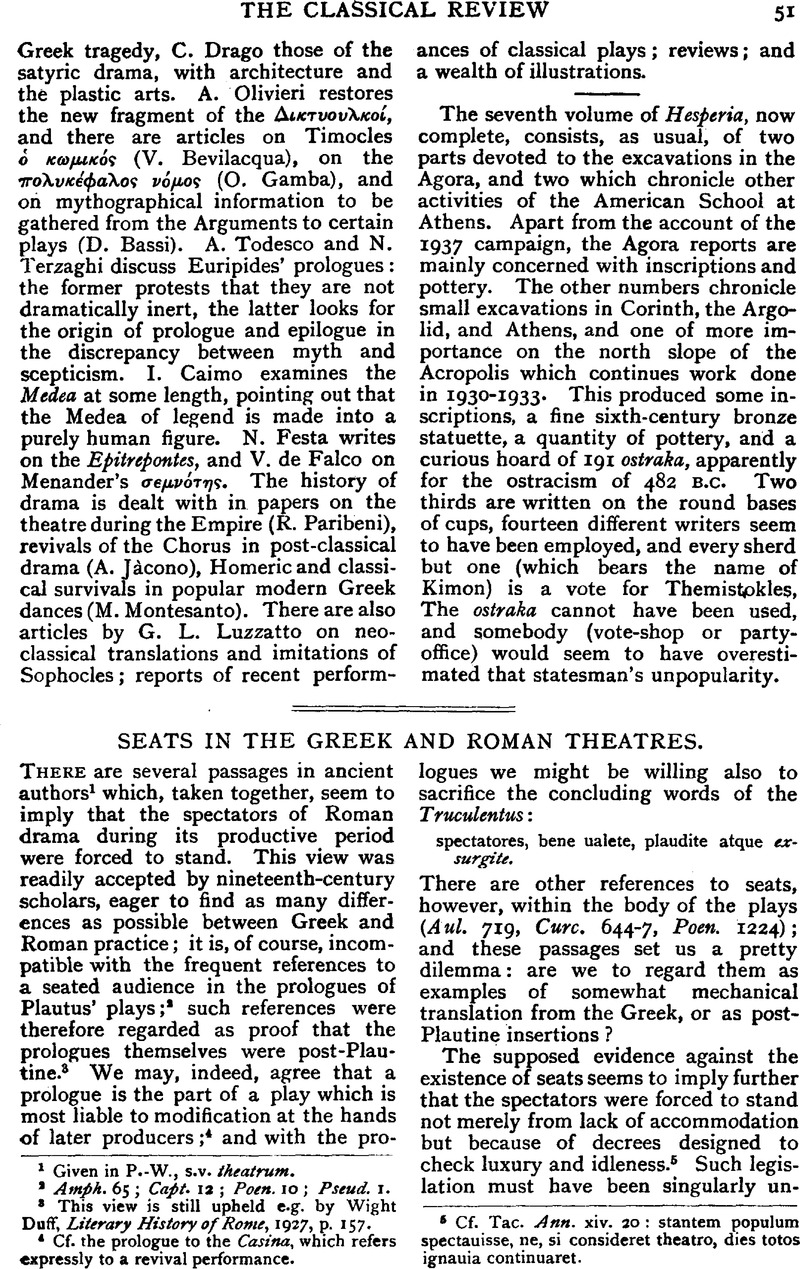No CrossRef data available.
Published online by Cambridge University Press: 27 October 2009

page 51 note 1 Given in P.-W., s.v. theatrum.
page 51 note 2 Amþk. 65; Caþt. 12; Poen.10; Pseud. I.
page 51 note 3 This view is still upheld e.g. by Duff, Wight, Literary History of Rome, 1927, p. 157Google Scholar.
page 51 note 4 Cf. the prologue to the Casina, which refers expressly to a revival performance.
page 51 note 5 Cf. Tac. Ann. xiv. 30: stantem populum spectauisse, ne, si consideret theatro, dies totos ignauia continuaret.
page 52 note 1 Nixon's translation.
page 52 note 2 Especially in view of the apparent reference to togas, togae cretatae,—which, by the way, seem to have been worn as early as the fifth century (Livy IV. xxv. 13).
page 52 note 4 Cic. Pro Sest. 124; Livy I. xxxv 8; Ovid Met. x 668 ; Tac. Ann. xiv 13; Suet. Calig. 35, Dom. 10.
page 52 note 5 Kidnapped children are always taken to another town: see Captivi, Menaechmi, Poenulus, Rudens.
page 52 note 5 Half of Plautus' plays are staged at Athens.
page 53 note 1 The vexed question whether women were admitted to the Athenian theatre would seem to be settled, for the late fourth century at least, by this very passage.
page 53 note 2 The pater familias would presumably be sitting (within earshot of the emperor) in one of the rows of stone seats which formed the lower two maeniana of the Flavian Amphitheatre.
page 53 note 3 cum consternatum ruinae metu populum retinere … nullo modo posset, transiit e loco suo atque in ea pane consedit quae suspecta maxime erat.
page 54 note 1 πρῶτον ξύλον seems to be used only of the front bench at the Pnyx or in the courthouse.
page 55 note 1 Pauly-Wissowa does not discuss how the curious belief arose that the Roman authorities, while officially arranging for theatrical performances, should for puritanical reasons have forbidden the spectators to sit. I suggest (1) that the wooden scaffolding or benches of Plautus' day left no visible trace for future ages to contemplate; (2) that some race-conscious Roman antiquarian, rather hurt at finding imposing tiers of stone seats in the theatres of Greek towns, tried to explain the absence of similar remains in Rome in a way which would flatter his countrymen's pride in the mas maiorum.